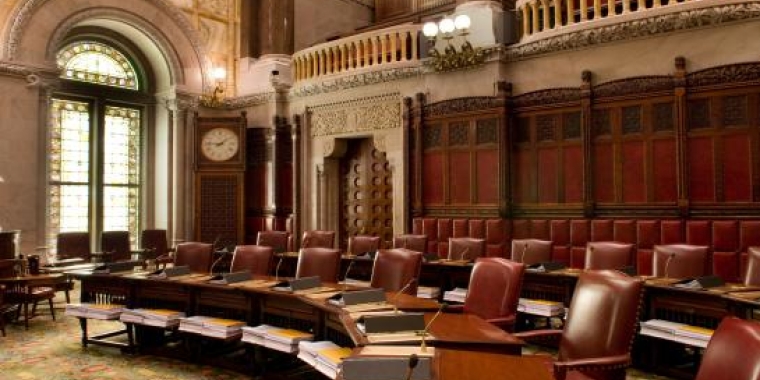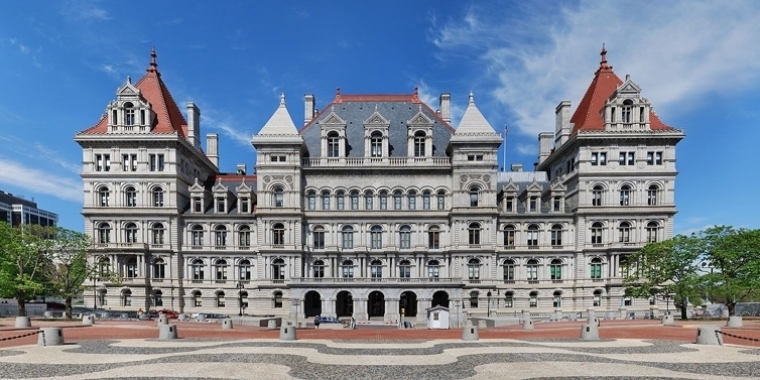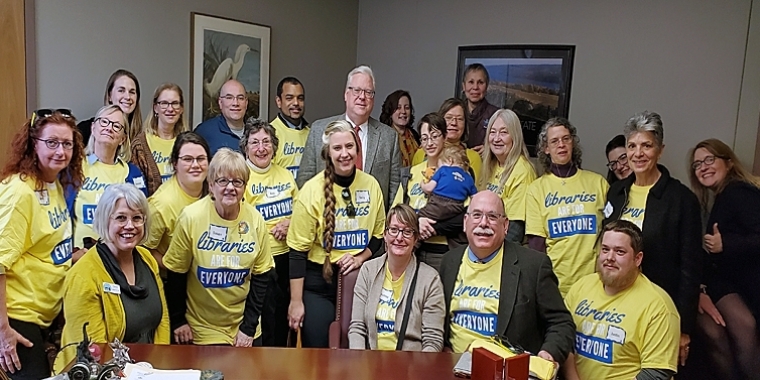
Senator O'Mara's weekly column 'From the Capitol' ~ for the week of August 30, 2021 ~ 'Keep an eye on the future of NY's family farms'
August 30, 2021
-
ISSUE:
- Family Farms

Senator O'Mara offers his weekly perspective on many of the key challenges and issues facing the Legislature, as well as on legislative actions, local initiatives, state programs and policies, and more. Stop back every Monday for Senator O'Mara's latest column...
This week, "Keep an eye on the future of NY's family farms"
In case you haven’t noticed over the past 18 months, there’s a lot to keep an eye on in state government.
If we have learned anything, in fact, we better have learned that the need for aggressive and vocal legislative oversight in New York State government has never been more critical.
The perfect storm of a government under one-party control, which automatically diminishes legislative checks and balances, and the fact that the Legislature’s current Democrat leaders have willingly, almost embarrassingly allowed Governor Andrew Cuomo to run this government purely by executive order, has raised so many red flags.
We’ve been reading and hearing about the obvious areas of concern, but let’s not let anything else go unchecked under the radar – and that includes the future of our family farms.
That’s right, the future of farming in New York State still hangs in the balance thanks to a law enacted in 2019 that was pushed by then-Governor Andrew Cuomo as a cornerstone of his so-called “progressive” remake of New York government.
This signature action of the 2019 legislative session was controversial legislation (S6578/A8419, Chapter 105 of the Laws of 2019) known as the “Farmworkers Fair Labor Practices Act,” conjured up by two Democrat legislators from the farming heartland of Queens, New York City and pushed hard by Cuomo.
Throughout the year prior to this law’s enactment, I joined many opponents, including the New York Farm Bureau, to warn about its consequences. We feared that mandatory overtime pay and other provisions of the new law, especially the creation of a three-member Farm Wage Board granted the authority to unilaterally change the law’s provisions, without legislative approval, could worsen the impact of farm labor costs on farm income at a time when the farm economy is already struggling.
We warned that it could increase already exorbitant farm labor costs by nearly $300 million or close to 20%, resulting in an across-the-board drop in net farm income of 23% -- keeping in mind that over the past five years, New York State has already lost 20 percent of our dairy farms.
I debated and voted against this move when the Senate approved it in June 2019.
The bottom line is that this misguided action by a state government triumvirate of leaders under one-party, largely downstate-based control -- guided on many current issues by a far-left, extreme-liberal governing philosophy -- has profound implications throughout local farm economies across rural, upstate New York, including driving more family farms out of business.
And that was the case even before COVID-19, which we now know has taken its own toll on our farmers and the entire agricultural industry, and heightened the burdens.
Unfortunately, we could see the worst consequences of this law play out, later this fall, as we feared. The three-member Farm Wage Board held a series of virtual public hearings in late 2020 that appeared to be paving the way for lowering the current 60-hour threshold requiring farmers to pay their employees overtime. The Wage Board ultimately delayed any changes to the law but is set to revisit it before the end of this year when it could, again without legislative approval, move to lower the 60-hour threshold.
That would be yet another economic disaster for New York’s farmers and farmworkers. It is critical for upstate legislators, for whom the farm economy is a foundation of communities we represent, to continue keeping close watch on a Wage Board still holding the future of so many farmers and rural economies in its hands. This is the worst possible time to risk mandating and regulating more farms out of business, and that is exactly what will be at stake.
If this Wage Board drives more farmers out of business, ex-Governor Cuomo and the Democrat legislative majorities will be responsible.
Let’s not forget the reaction of New York’s farm community on the day in the summer of 2019 when Cuomo officially signed the new law. Remember that he didn’t hold the signing ceremony at an upstate New York family farm. Instead, he went to Manhattan to the offices of the New York Daily News, a liberal big city daily newspaper that had long advocated for the law.
It might have been good at the time for Cuomo’s big city politics, but New York’s farm community spoke for itself that day.
“Common ground should have considered what farms can afford and the opportunities our employees will lose as a result of this law. In the end, our reasonable requests were cast aside… What was also dismissed by many of New York's leaders is the dignity and respect our farm families have long provided to the men and women we need and work alongside every day…(the law) will still lead to significant financial challenges for farmers and the continued erosion of our rural communities,” said Farm Bureau President and dairy farmer David Fisher.
In a statement, Grow NY Farms, a statewide coalition, wrote, “For months, hundreds of farmers and farmworkers spent countless hours seeking to find a balance with elected officials on measures that will change working conditions on farms across New York State. However, the measure that ultimately passed the Legislature and was signed by the Governor did not address the challenges and needs of farmers and farmworkers. (The law) does not create a path that will assure and economically viable New York agricultural industry.”
No attempt to find common ground. No common sense. That’s where we still stand.
At the very least, the must be continued, aggressive legislative oversight of this law’s implementation, including an ongoing assessment of its impact on the rural, upstate farm economy before there’s any move by an unelected, unaccountable Farm Wage Board to change the law and make it even more onerous on farmers and farmworkers.
It has been reported that farm labor costs in New York State increased 40 percent over the past decade and that the 2019 law could result in another crippling 44-percent increase in wage expenses.
Total farm labor costs are at least 63 percent of net cash farm income in New York, compared to 36 percent nationally.
In my view, before even considering any changes, the Wage Board must allow adequate time to collect and assess data that would provide a more definitive picture of the impact of the 60-hour threshold on the finances and operations of New York farms, as well as consider additional factors including COVID-19’s ongoing impact on the agricultural industry.
Now is no time to make this worse.
###
Share this Article or Press Release
Newsroom
Go to Newsroom
"Governor Hochul has shamefully forgotten us in a time of need"
October 17, 2022


Local public libraries awarded state grants
October 7, 2022
